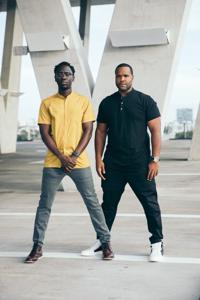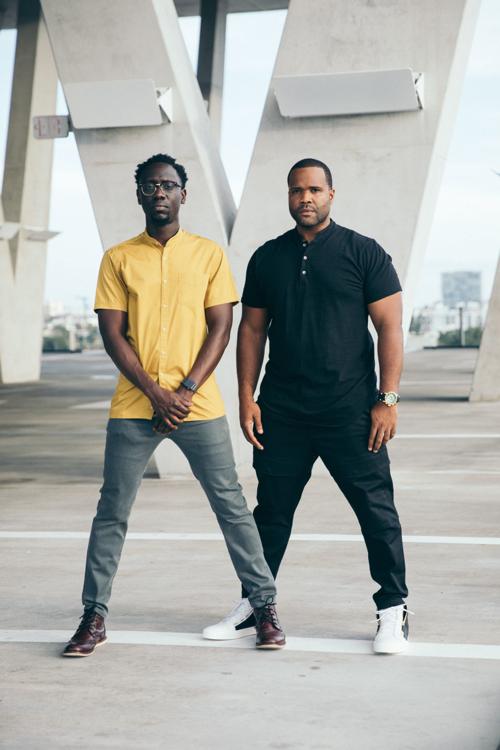Black Violin is bringing its Impossible Tour to Centennial Hall on Thursday, Jan. 30, and there is something violinist Kevin Sylvester wants people in Tucson to be clear about: Just because he plays violin and his partner Wilner Baptiste plays viola doesn’t mean you’re going to hear the best of Bach and Beethoven.
But just because they have a DJ working the turntable and Baptiste, aka Wil B., drops rhymes and vocals doesn’t mean you won’t hear a little Hayden with your hip-hop.
“People think when they come to our shows and listen to our album, it’s about the violins. But it’s not really about the violin,” said Sylvester, also known as Kev Marcus. “It’s really more about trying to get people to think differently. That’s basically our entire MO, our entire career. How can we get people to think outside of the box.”
On their months-old album “Take the Stairs,” the pair also hope listeners will find, well, hope.
“We want to be entertaining, we want the music to be good, but with this album particularly it’s a bit more about hope,” Sylvester said in a phone call from a concert stop last week in Logan, Utah. “That’s the word we had on the wall the entire time we were in the studio. We want the album to be hopeful but not preachy. You put it on and you’re like, hey, I can be anything. The impossible is possible.”
“Impossible is Possible” is the first single off the record and the name of the tour, which the pair launched last year.
It’s also the inspiring message they are spreading at every show.
“How can we get people to think outside of the box. That’s all that we’re doing,” Baptiste explained. “People think when they come to our shows and listen to our album, it’s about the violins. But it’s not really about the violin... Musically, our goal is to give you that good feeling that you get when you hear a classical song.”
The pair, who met in high school and have been performing as Black Violin for 18 years, also want to reach people who have no interest in classical music.
“Most people I’ve talked to are like ‘I love the violin.’ But I just don’t think the violin necessarily has been presented to them in ways that is for them,” he said. “Most of the time it’s Mahler and Tchaikovsky and they hear it in the movies. How are we training new audiences to love and appreciate this art form? That’s basically what our goal is.”
And while they sneak in passages from classical music, including Dvorák’s “Slavonic Dances” on the song “Al Green,” it’s subtle enough to warm over non-classical music fans.
“Maybe you’ll listen to it and you’ll hear Dvorák and maybe someone else will listen to it and be like, ‘Man, that’s an Al Green bassline.’ And that’s the whole point,” he said. “It’s this really cool marriage that doesn’t seem forced. We are classical and we are hip-hop producers at the same time and we are very careful how we marry these two things together because we want lovers of both genres to come together and get their minds opened by this.”





